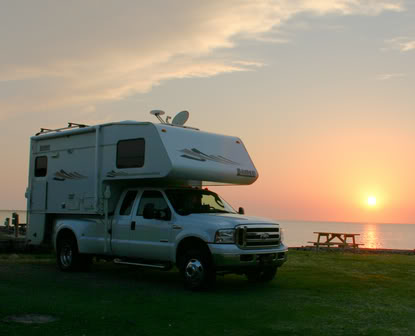greg
Thinks s/he gets paid by the post
- Joined
- Jun 1, 2005
- Messages
- 1,071
We always learn alot while out on the road. One time a full-timer who sort of 'worked the nice weather' talked with us for about an hour about his lifestyle. He had a girlfriend with her own MH, and he'd meet up with her in pre-planned locations. They were both older and had their own respective families (and no interest in marriage). He used his daughter's as a home base. She spent a great deal of time visiting her larger family and friends.
As I understood it, he sort of worked the fringes. He stayed at places during the tourism low season, the shoulder seasons. He could usually nab some work if needed. Although he didn't get specific, my gusss was that he was getting by on Social Security and maybe some little extra. His daughter sent him money or forwarded his checks. He said he always wintered at The Slabs, with his girlfriend:
http://www.findarticles.com/p/articles/mi_qa3707/is_200102/ai_n8936588
As I understood it, he sort of worked the fringes. He stayed at places during the tourism low season, the shoulder seasons. He could usually nab some work if needed. Although he didn't get specific, my gusss was that he was getting by on Social Security and maybe some little extra. His daughter sent him money or forwarded his checks. He said he always wintered at The Slabs, with his girlfriend:
http://www.findarticles.com/p/articles/mi_qa3707/is_200102/ai_n8936588


